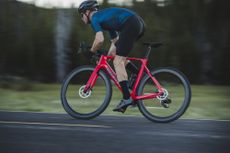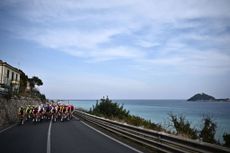Giro Ethos MIPS helmet review - indicator lights: great or gimmick?
A feature heavy helmet with some novel integrations. The functionality is flawless but whether it's worth the premium price tag is less obvious
- (opens in new tab)
- (opens in new tab)
- (opens in new tab)
- Sign up to our newsletter Newsletter
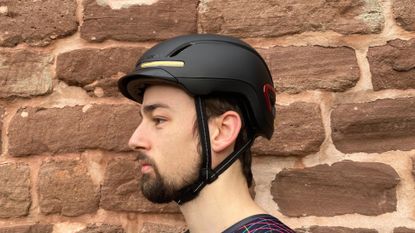
For city riding, this helmet is excellent. Even during the day time, the Giro Ethos MIPS helps you stand out to other road users in a safer way. The weight is a bit high but perfectly manageable for shorter rides. Similarly, the ventilation is sufficient for the intensity of riding you're likely to be doing with this helmet. Regarding the fit, what suits one rider won't necessarily suit the next, so always best to try it on in a shop before committing to the purchase.
-
+
Superb visibility
-
+
Easy to use control
-
+
Bright lights
-
+
Up to date safety tech with MIPS
-
+
Good overall head coverage
-
+
Indicators are great with visual and audio cues
-
-
Heavy
-
-
Ventilation not great for warmer days
-
-
A little tight on the sides of the head
-
-
Expensive
Why you can trust Cycling Weekly Our expert reviewers spend hours testing and comparing products and services so you can choose the best for you. Find out more about how we test.

The Ethos MIPS is Giro's commuter helmet which benefits from both front and rear LED lights as well as 'remote handlebar-activated turn signals' (more on that later!). MIPS safety technology has also been incoorporated into the design to provide protection against rotational forces in the unfortunate event of a crash.
Is this all-in-one helmet the ideal solution for commuters and one of the best commuter bike helmets? If you want the ability to indicate clearly and safely, then perhaps this will be a gamechanger that's worth paying that bit extra for...
Giro Ethos MIPS: construction
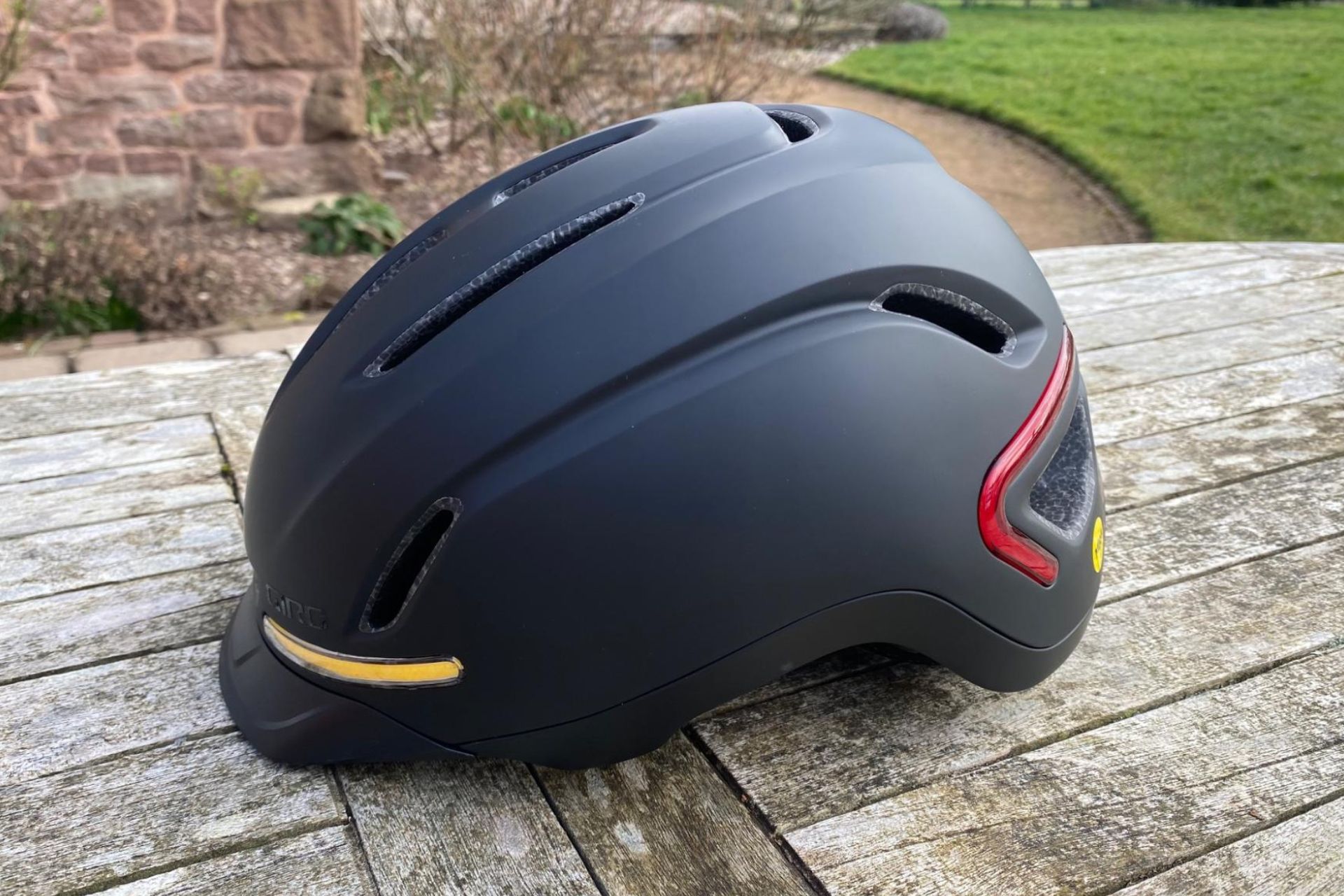
The Giro Ethos MIPS helmet uses a combination of foam (for the internal structure) and a full external hard-shell covering in its construction. In addition to this, Giro has integrated a Multi-Directional Impact Protection System (MIPS), providing better protection against rotational and angular impacts.
The TPU brim acts as a useful rain guard for your face, whilst the 'Roc Loc' retention system helps ensure that the helmet stays firmly in place on your head. The straps are easily adjustable around the ears and in their total length and features a magnetic locking system which is easy to use and secure.
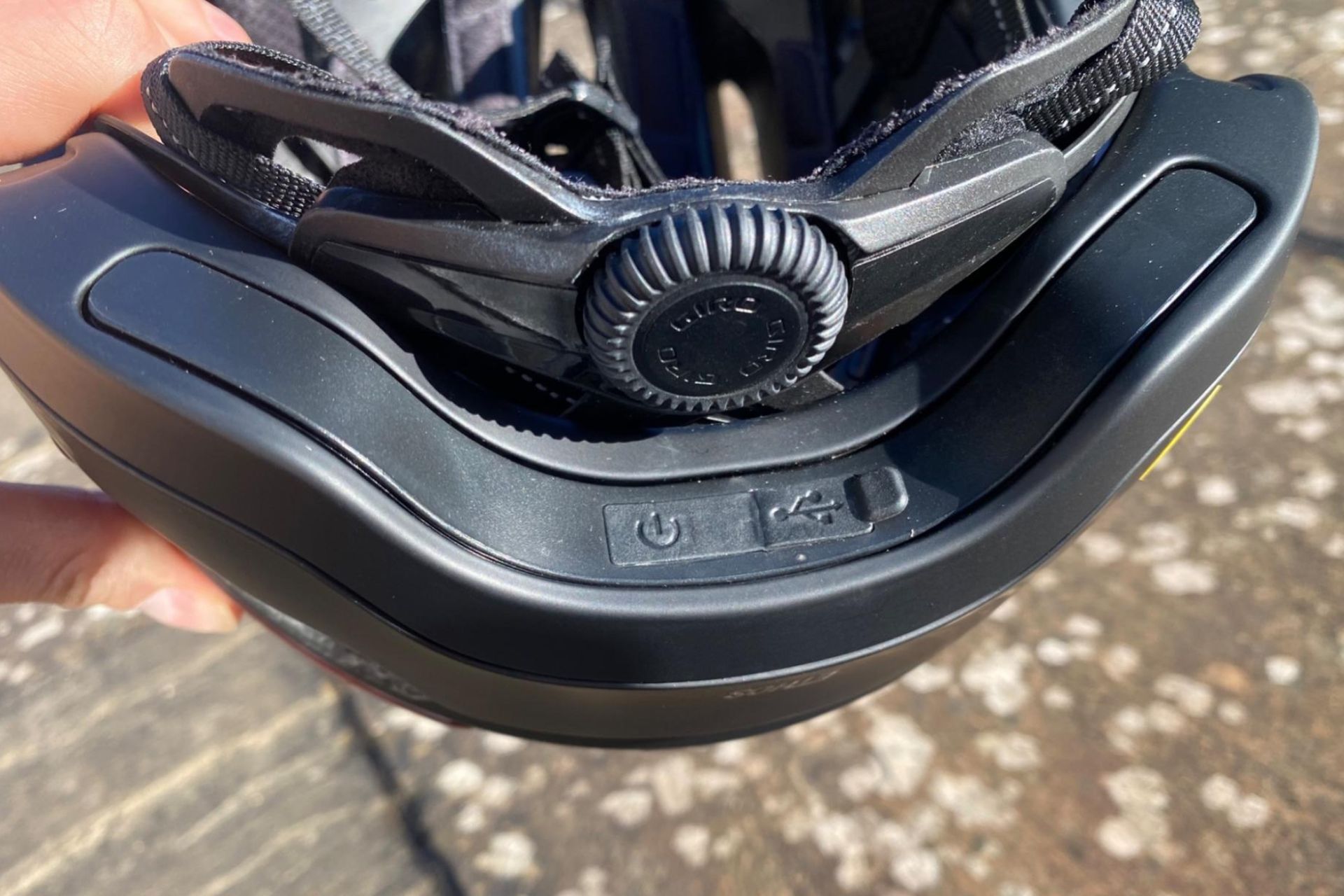
At the back of the helmet is the control button for the lights and the charging port (which uses USB-C). The lights themselves include two white front-facing LED lights with 45 lumens of power and two rear LED red lights at 30 lumens.
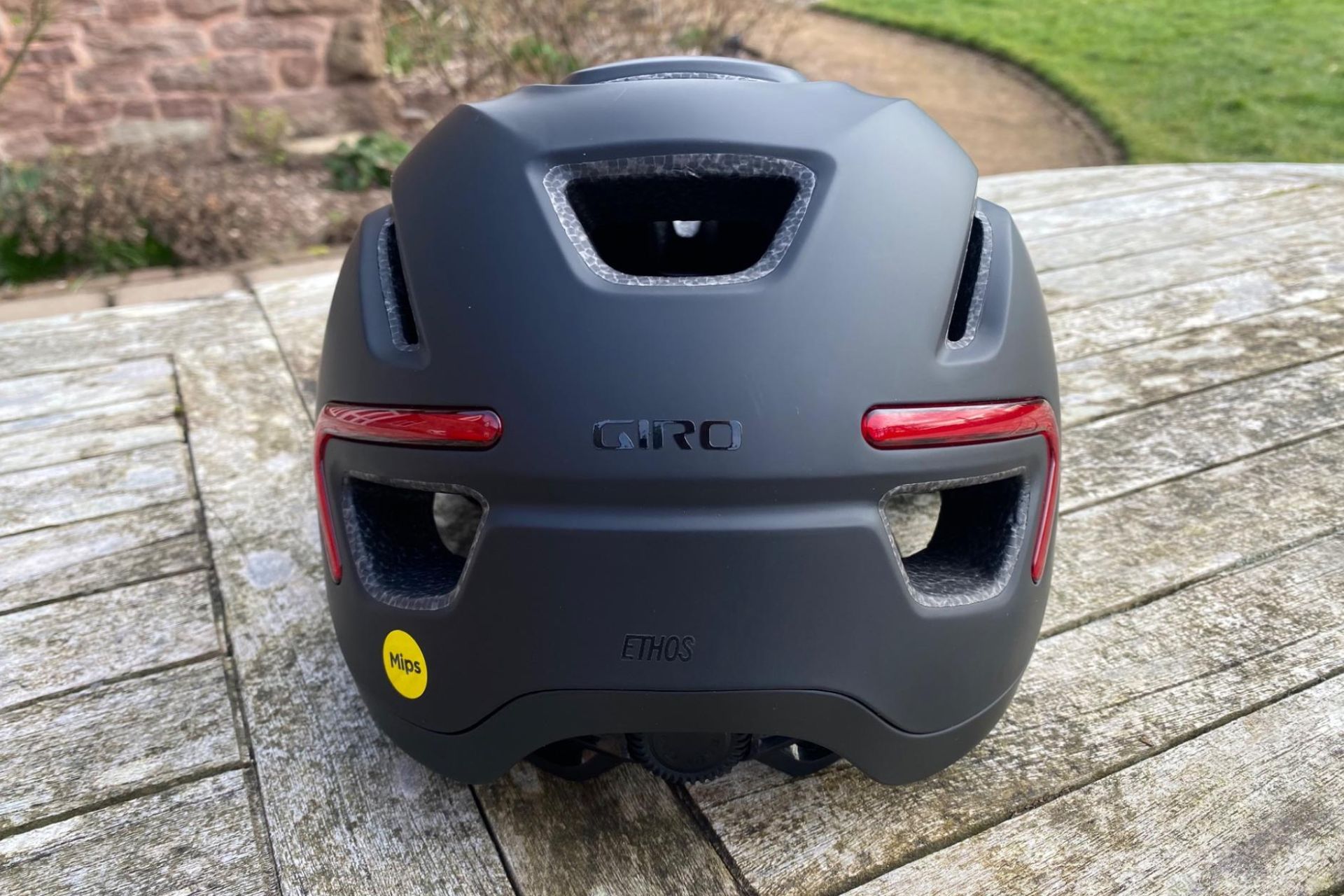
When indicating, the direction you are turning, one set will flash amber/orange, whilst the other side-lights will continue to shine white or red.
The indication and flash rate of the helmet lights can be controlled by the handlebar mounted remote, which has a visual display that the indicator is on and can also be used to cancel the indication.
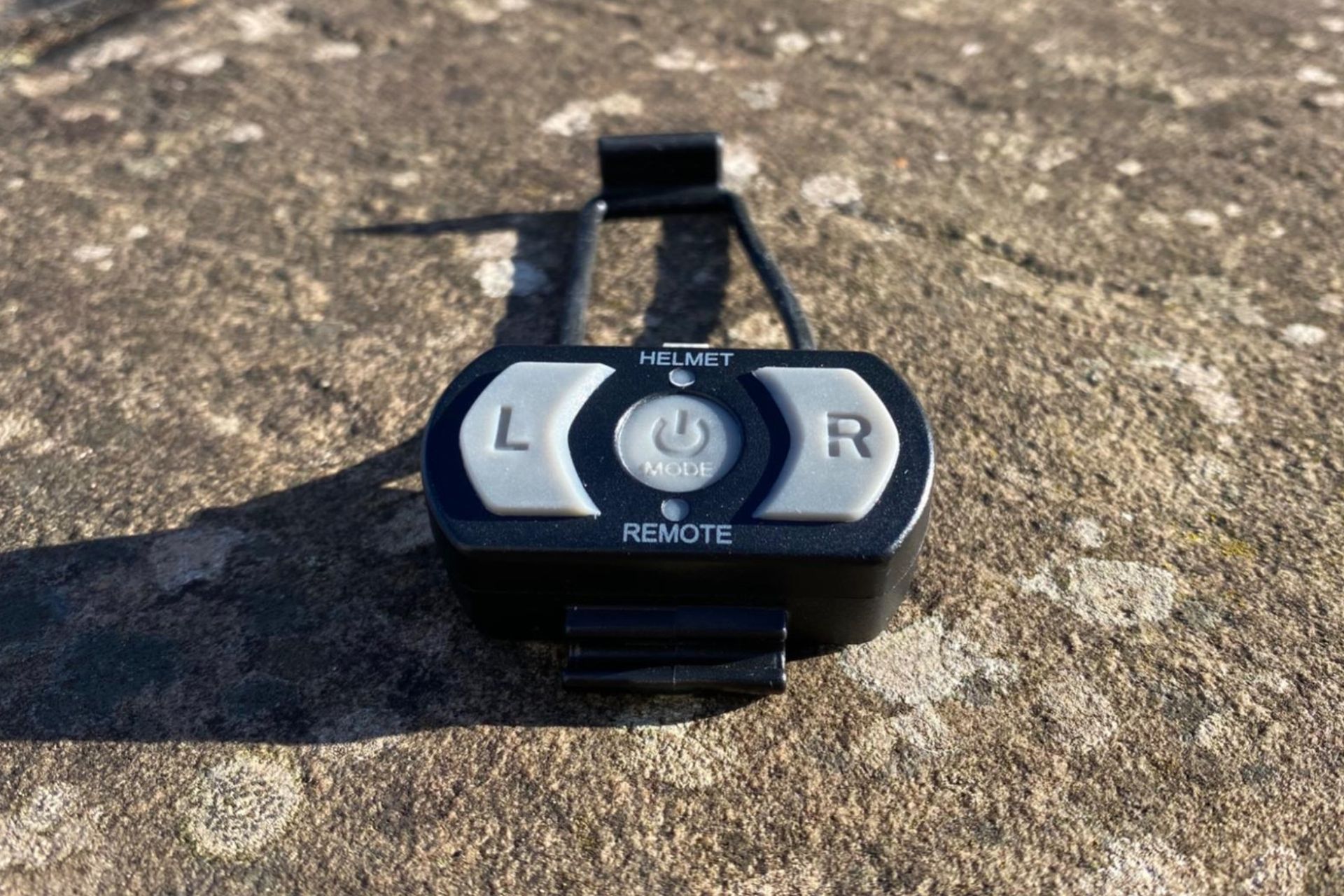
Ventilation is supplied by 12 vents and internal channelling, whilst inside there is antibacterial quick dry padding to help keep your head comfortable. The weight of the helmet is claimed to be 455g but was measured at 470g on our scales.
The ride
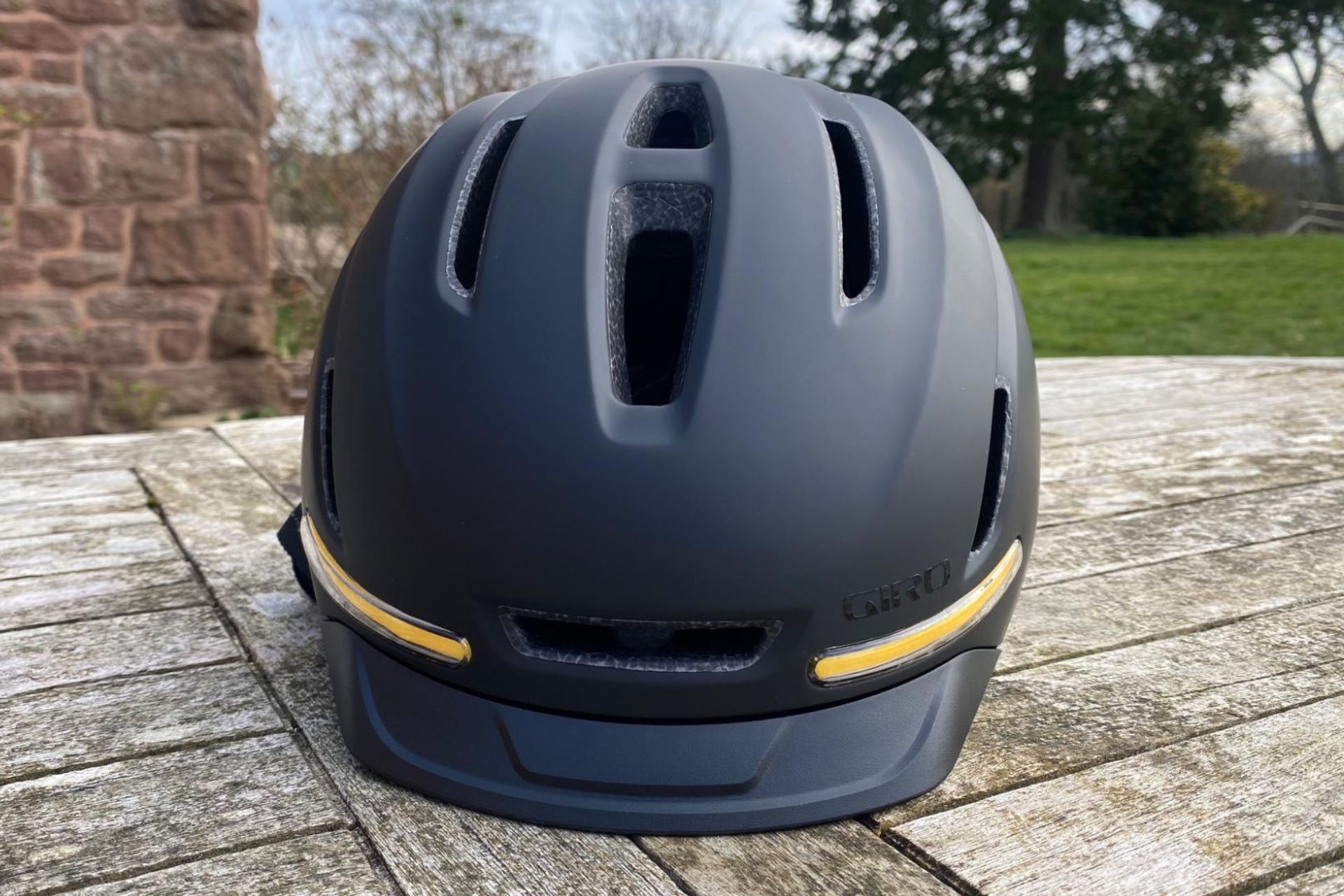
The Giro Ethos MIPS was very easy and intuitive to use in regards to the lights. A long hold at the back to turn it on and a quick press to change the brightness of the flash or to change to the solid beam to different brightnesses.
Connecting to the handlebar remote was also very easy for using the indicators. The fact that while indicating you get a visual cue on the remote is very useful, and the helmet also beeps to let you know that you are indicating. Strangely, you can turn the helmet off with the remote, but you can’t turn it back on.
Adjusting the straps on the helmet was very easy. The fit can be tailored around the ears as well as the overall strap length, making the fit very individualised. One issue I did have with the size medium was that the helmet was a little tight around the sides of my head. This is something I’ve had before with Giro helmets and I think is just to do with the shape of my head, as normally a 55-59cm helmet fits me fine. The magnetic buckle was a little fiddly to get right the first time, but since then it has been easy to attach and detach.
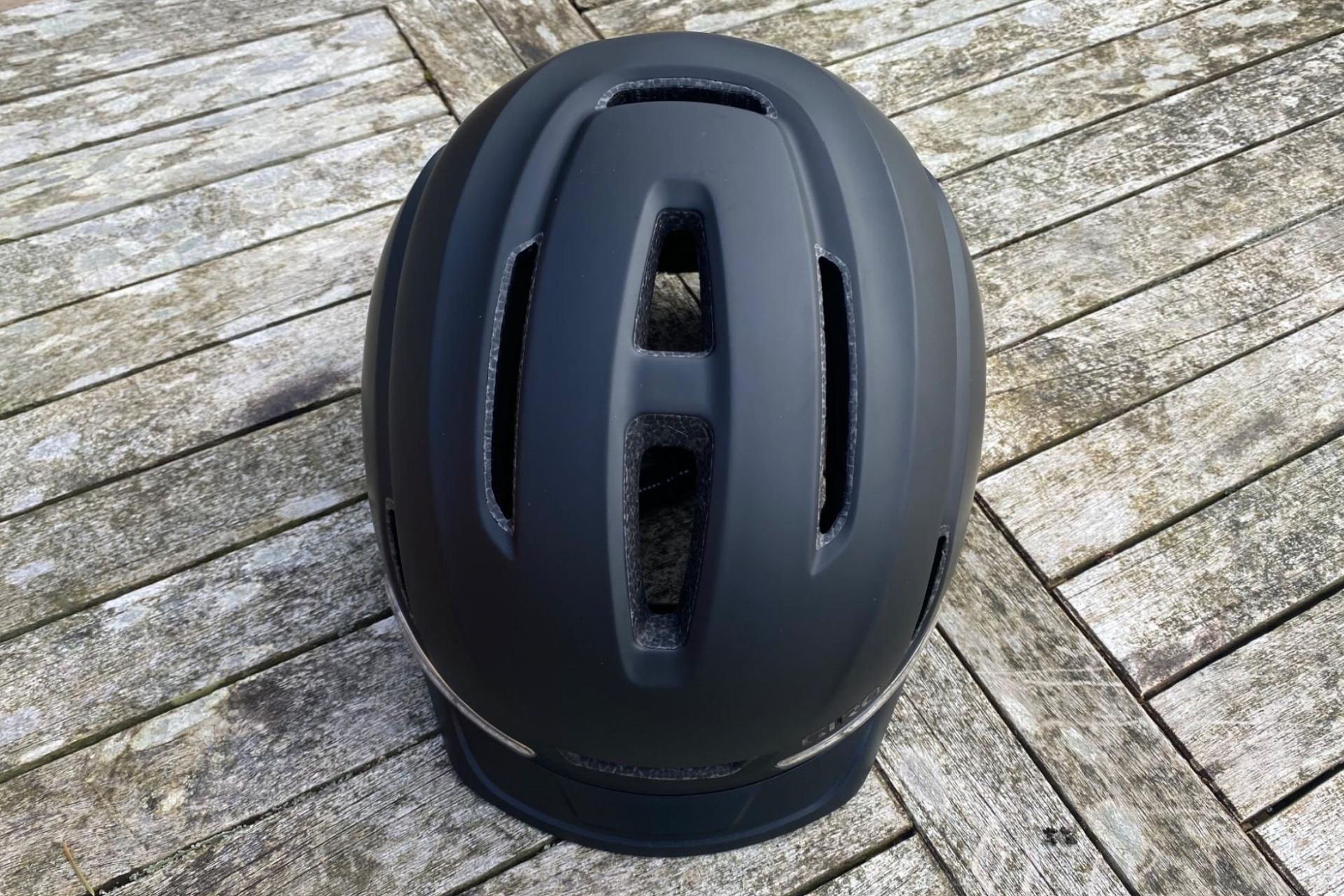
Riding in temperatures between 5 and 15 degrees, the ventilation in the helmet is more than enough, and a bit cold when at the lower end of the temperature range. For commuting, which is what this helmet is designed for, the ventilation is fine; for anything higher intensity it may be a little too warm.
I found the lights to be really quite good. I wouldn't use them as my only lights when riding at night - 40 lumens doesn't illuminate much of the road - but in terms of boosting your visibility for other road users, they really do stand out.
The turn signals are very clear and stand out well. For urban commuting with side roads and the need to move into the middle of the road to make turns, I think this is a gamechanger. The indicating lights ensure that any traffic around you is fully clear of your intentions and, thanks to the remote on the bars, you can indicate while keeping both hands on the bars and the brakes - making it safer than sticking your arm out.
Value and conclusion
There are a few other options when it comes to helmets with inbuilt lights. The Kask Moebius Limelight ($160.00 / £119.00) is cheaper but only has a rear light. There is also the Lumos Ultra with MIPS ($189.95/ £150.00) which has front and rear lights but no indicator - although it is nearly 100g lighter. Then there's the Lazer CityZen KinetiCore, which can have a rear LED fitted and comes in at only $69.99 / £59.99, as well as boasting anti-concussion protection and weighing 420g.
So, the Ethos is expensive, but it does offer something I haven’t seen on any other cycling helmets with the built-in indicators. It also has great up-to-date safety features. So, the value really comes down to whether you think you’d benefit from the indicators - or if you'd be better off with a regular set of lights.
The Giro Ethos offers something that no other helmet does: the ability to use indicators so that you can keep both hands on the bars and brakes, whilst still indicating your intentions on the road to other road users. In practice, it is very effective and in busier urban environments it really is brilliant. The main lights themselves don’t offer great road visibility, but they do help make you more visible on the road.
The fit of the helmet feels a bit narrow personally on me, and weight is high but not noticeable once riding. The MIPS protection is a proven safety feature worth having, and the ventilation the helmet offers is perfectly adequate for commuting.
The price is high, but if you want the ability to indicate clearly and safely, this may be a bit of a gamechanger for you.

Thank you for reading 10 articles this month* Join now for unlimited access
Enjoy your first month for just £1 / $1 / €1
*Read 5 free articles per month without a subscription

Join now for unlimited access
Try first month for just £1 / $1 / €1
Andy is a Sport & Exercise Scientist, fully qualified and experienced cycling coach, personal trainer and gym instructor. He spent 3 years on the road riding for a UCI cycling team and 7 years as a BC Elite rider.
After graduating in 2020 with first-class honours in his Sport & Exercise Sciences BSc, he continued to pursue his interest in research in the field of sport science alongside setting up his coaching business, ATP Performance, and working for USA-based firm, Wahoo Sports Science. He balanced this with racing at international level, competing in prestigious events such as the Tour of Britain and the Volta a Portugal.
-
 High-end bikes still in demand, says Giant as it announces 12.5% revenue increase
High-end bikes still in demand, says Giant as it announces 12.5% revenue increaseBut like much of the industry the Taiwanese manufacturer is also experiencing a surplus of low to mid priced stock
By James Shrubsall • Published
-
 Milan-San Remo 2023: Route and start list
Milan-San Remo 2023: Route and start listAll you need to know about the first Monument of the 2023 season
By Ryan Dabbs • Published
-
 Summit finish and final day time-trial for 2024 Tour de France finale in Nice
Summit finish and final day time-trial for 2024 Tour de France finale in NiceStage 20 will finish atop the Col de la Couillole before final day race against the clock in Nice
By Tom Thewlis • Published
